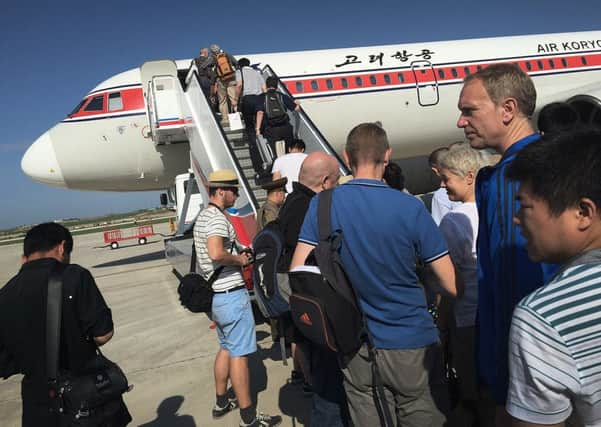North Korea in bid to woo international tourists


Now North Korea is stepping up its enforcement of a broad set of strict but sometimes ambiguously implemented regulations about what foreign visitors can bring with them or what they can do while in the country.
Advertisement
Hide AdAdvertisement
Hide AdThe country’s push for tourists began in 2013 and visitors can now enjoy a surprisingly broad array of options, from helicopter rides over the capital to surfing on the country’s scenic eastern coast. With winter now setting in, the North is hoping its newly opened luxury ski resort near the city of Wonsan, which was largely empty of tourists last season while Pyongyang closed its borders over Ebola fears, will be a big draw.
Even so, the pro-tourism policy, like many other business opportunities that involve dealing with and possibly making concessions to the outside world, poses an obvious conundrum for Pyongyang – the potential of economic gains that require change, versus concerns about how that might undermine regime security.
“Despite the policy of getting more tourists, they still see security, or at least perceptions of security, as a bigger concern, and tourism is pretty far down the list of priorities,” said Simon Cockerell of Beijing-based Koryo Tours, which has specialised in North Korea travel since 1993. “It’s clear that the restrictions, rules and so on often act against increasing tourist numbers.”
For those visitors who do break the rules, the risks of detention, arrest and possibly even jail sentences are real enough, especially if the offender is from the United States. The US state department recently updated and expanded its already blunt warning against North Korean travel. In a nutshell, its advice is simple – just don’t do it.
“While tourism and the flexibility of travel in the DPRK has expanded, there has been a measurable increase in security at the borders,” said Andrea Lee, chief executive of New Jersey-based Uri Tours, which has been organising tours to the North – officially the Democratic People’s Republic of Korea – for 15 years.